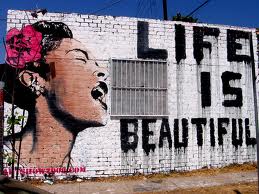British black gospel refers to Gospel music of the African diaspora.
Gospel music can be traced to the early 17th century,[1] with roots in the black oral tradition. Hymns and sacred songs were often repeated in a call and response fashion. Most of the churches relied on hand clapping and foot stomping as rhythmic accompaniment. Most of the singing was done a cappella.[2] The first published use of the term "gospel song" probably appeared in 1874. The original gospel songs were written and composed by authors such as George F. Root, Philip Bliss, Charles H. Gabriel, William Howard Doane, and Fanny Crosby.[3] Gospel music publishing houses emerged. The advent of radio in the 1920s greatly increased the audience for gospel music. Following World War II, gospel music moved into major auditoriums, and gospel music concerts became quite elaborate.
18th century
Perhaps the most famous gospel-based hymns were composed in the 1760s-1770s by English writers John Newton ("Amazing Grace") and Augustus Toplady ("Rock of Ages"), members of the Anglican Church. Starting out as lyrics only, it took decades for standardized tunes to be added to them. Although not directly connected with African-American gospel music, they were adopted by African-Americans as well as white Americans, and Newton's connection with the abolition movement provided cross-fertilization.
American Gospel strongly influenced the British Gospel Scene with people like Mahelia Jackson and Thomas Dorsey
Listen here to Roy Francis joining the dots on exactly how Gospel music gained prominence in the UK. With over 30 years’ experience within television broadcasting, music and production industry, former producer of BBC’s ‘Songs of Praise’ and ground-breaking gospel music series ‘People Get Ready’ shown on Channel 4 in the 1980s.
Gospel Music
although a subgenre of black music in the UK today arrived in
England in the early post-war years, along with the large-scale
immigrant influx and their wide variety of musical tastes. Pioneers in
this field include an eight-piece a cappella family group from Trinidad
called the Singing Stewarts
-
Oscar Stewart, Ashmore Stewart, Frankie Stewart, Phylis Stewart,
Gloria Stewart, Timothy Stewart, Thedore Stewart and Del Stewart - who
were the first to appear on a major British record label in the late
1960s. They impressed many English audiences with their unique
interpretation of Negro Spirituals and traditional Gospel songs. Based in Birmingham in the Midlands they appeared on numerous radio shows and participated in the prestigious Edinburgh Festival, again increasing awareness of this genre.
In later years and decades when black people began to settle in the
UK, groups such as The Doyleys, Paradise, Lavine Hudson and the Bazil
Meade-inspired London Community Gospel Choir began to drive the music much further towards the mainstream and out of the comfort zone of the black churches.
The Singing Stewarts are featured in the book British Black Gospel: The Foundations of this vibrant UK sound
by Steve Alexander Smith. Huddersfield-born Smith was inspired to write
the book after spending time in the USA in the mid 1990s and witnessing
the best that Black Gospel could offer.
The book is the world's first to cover the underground British Black gospel scene and is published with a 13-track CD.


No comments:
Post a Comment